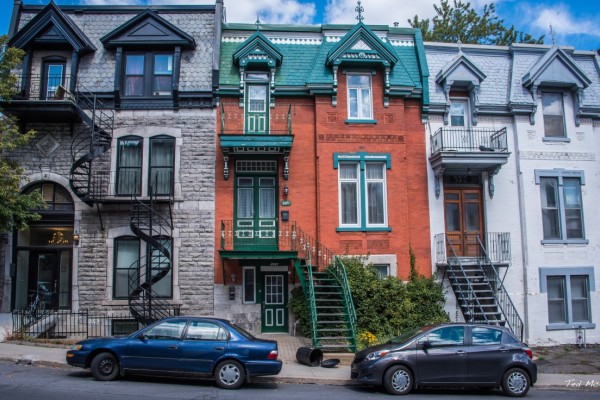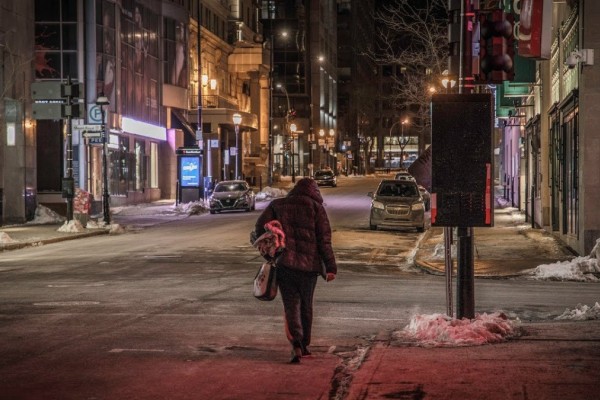-

Historic setback for complainants against police abuse in Québec
Québec’s police complaint system is about to be severely weakened as third parties are no longer able to submit complaints to the ethics commissioner. As Alexandre Popovic explains, while third-party complaints represent a small fraction of the files submitted, they have a much higher chance of leading to a sanction against police officers.
-

Québec public sector workers are ready for a general strike
Fed up with the deterioration of public services under the Coalition Avenir Québec (CAQ) government, thousands took to the streets of Montréal on September 23 to demand fair pay, improved benefits, and better working conditions while unions negotiated new collective agreements with the province. Journalist Lital Khaikin provides our latest labour update.
-

The Québec government’s push to ban lease transfers is an act of class warfare
In Québec, lease transfers are “one of the only tools that tenants have for ensuring affordable rents” amidst a worsening housing crisis. However, the governing centre-right CAQ has tabled, Bill 31, which would eliminate lease transfers from the tenant playbook. Housing expert Gavin Armitage-Ackerman calls this legislation “class warfare.”
-

Private health care is no remedy for an ailing system
As the CAQ government continues to peddle privatization as the solution to the Québec’s health care woes, progressive organizations are sounding the alarm about the creeping establishment of a two-tier system. This overview is a translation of the fourth part of a series on health care in Québec published in April 2022 by IRIS, Québec’s leading progressive research institute.
-

Québec Solidaire’s housing platform is a break from stale orthodoxy
What Québecers need more than anything is a chance to finally break with a stale orthodoxy, one which says that housing is not only out of our control, but that its priority is to be an investment opportunity above all else. As Gavin Armitage-Ackerman writes, Québec Solidaire’s platform offers a chance to finally reject that status quo.
-

We must get rid of the CAQ government. Québec Solidaire is the only alternative
In advance of the October 3 provincial election in Québec, CD editorial board member André Frappier provides a critical review of the CAQ government’s policies over the past four years, and sounds a call to mobilize and support Québec Solidaire as the only political alternative equipped to improve society and protect the rights of the vulnerable and the environment.
-

Québec Solidaire tightens party discipline with a view to election
Québec Solidaire was born fifteen ears ago from the unification of the principal left forces in Québec that adopted a common progressive and independentist program. As it grows, having elected 10 Members of the National Assembly in 2018, the party is tempted by the lure of power and a tendency toward the concentration of power internally. These tendencies were in evidence at the party’s May 15-16 National Council meeting.
-

Fighting the extreme right, building the left
The federal government’s addition of the far-right group the Proud Boys to the Criminal Code list of terrorist entities has sparked some debate among progressive groups, including in the pages of Canadian Dimension. While street mobilization is important and necessary, it alone will not be enough to defeat the extreme right. We take this opportunity to reflect on the necessary perspectives for the left.
-

Crisis policing in Québec is shifting blame to vulnerable people
While it is undeniable that COVID-19 has reached a critical stage in recent weeks, the adoption of authoritarian measures ought to be viewed critically. With its latest lockdown, the Québec government led by Premier François Legault has failed to show humanity by policing the health crisis and putting vulnerable people at increased risk.
-

Québec solidaire defines its political priorities
A major challenge for Québec solidaire is to refocus public attention on climate change and the environment as an essential part of the solution to the COVID-19 crisis and of any vision of genuine social transformation. This was the primary issue for QS during its last election campaign, but it is also a determining factor in how the party is positioning itself on Québec’s political stage at the current time.



